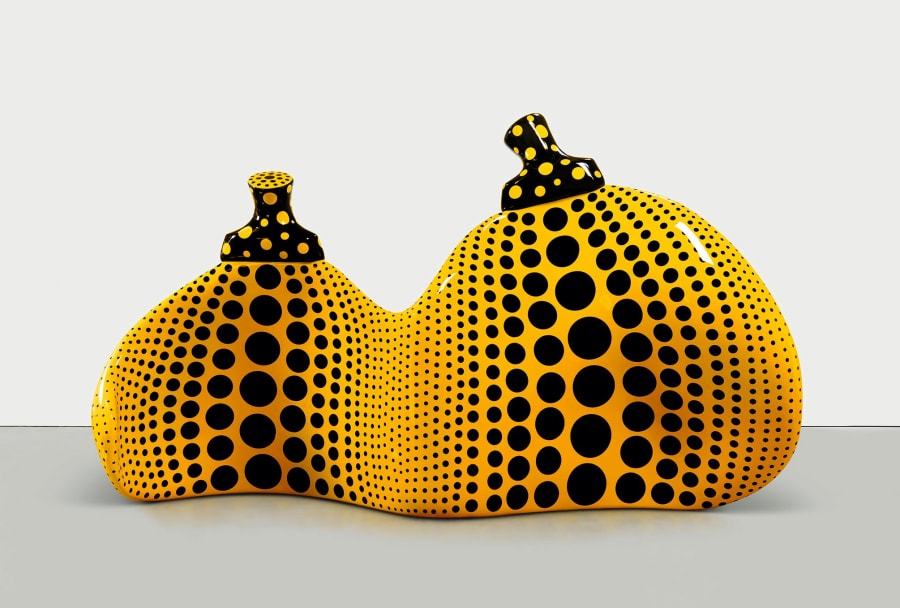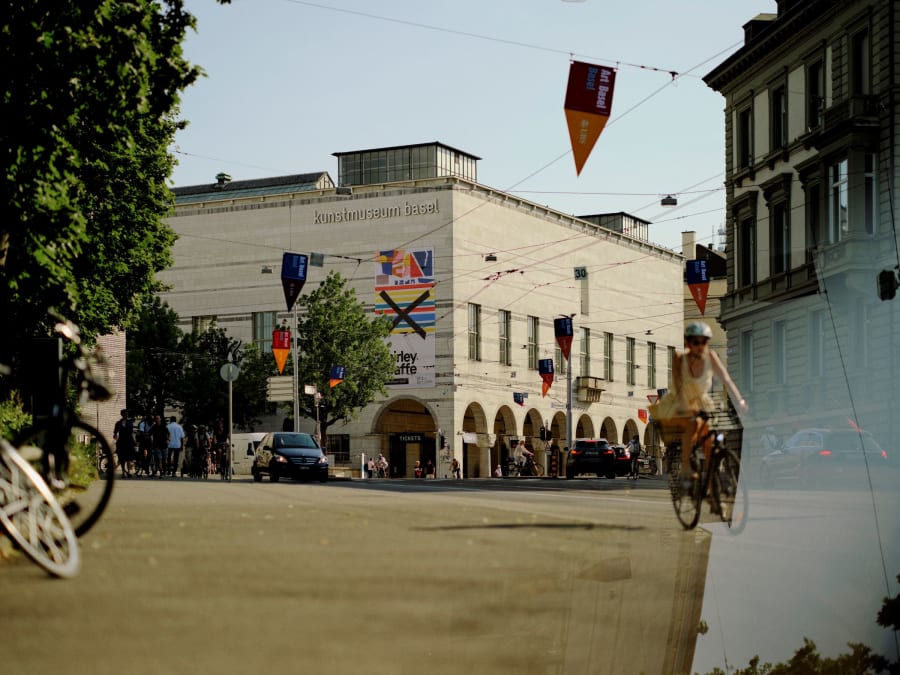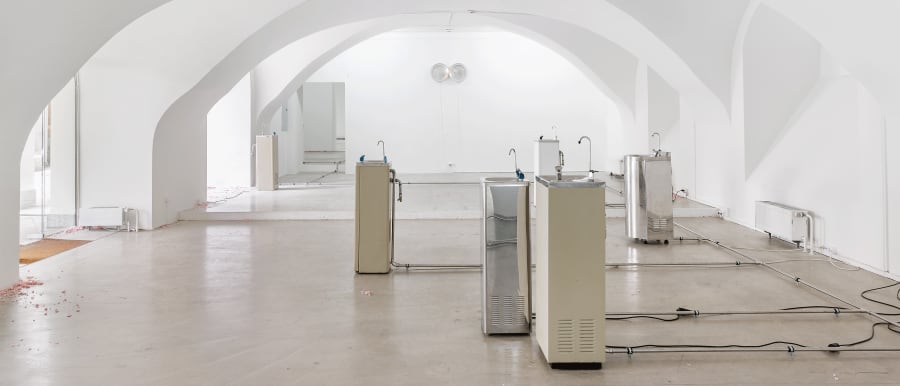During its 20-year run, Parisian concept store Colette was the ultimate arbiter of ‘style, design, art, and food,’ as its motto proclaimed. At the center of its inimitable success story was Sarah Andelman, who co-founded the Rue Saint-Honoré hotspot with her mother, Colette Roussaux, in 1997, as a home for their favorite products. As the store’s creative director, Andelman constantly had her finger on the pulse of all things cool, whether it was masterminding Colette’s famed Water Bar, which served more than 100 types of bottled water from around the globe, or its distinctive collaborations – think Hello Kitty x Playboy and Pharrell Williams x Ladurée.
‘Shopping needs to be an experience: the curation, the quality, the research of the products, and the salespeople are all very important,’ Andelman tells Art Basel. Since closing Colette in 2017, the entrepreneur has conceived pop-ups for brands like Sacai, Vans, Pharrell’s digital auction platform JOOPITER and recently curated an exhibition at Le Bon Marché Rive Gauche. In 2021 she launched JUST AN IDEA BOOKS, a publishing company dedicated to collectible monographs on creatives, such as artist and photographer Katerina Jebb and artist Douglas Coupland.
Andelman’s latest venture: the Art Basel Shop, debuting at the Swiss fair this June. Featuring a mix of art, books, magazines, fashion, mementos, and more, the in-person-only store will include a curated selection of artist products from participating galleries, as well as new and exclusive items ranging from CHF 3 for a sticker to CHF 5,000 for an editioned artwork. ‘I love art and visiting exhibitions, but I especially love products related to art. For me, art is not only in museums, but it’s also what you see every day at home,’ says Andelman via video call from her office desk. She points to her pen holder, sheathed in miniature masterpieces. ‘I may not be able to have a Tom Sachs painting, but I am so happy to have this little Tom Sachs sticker.’
In addition to a wide range of price points, Andelman took another page out of Colette’s book – the joy of discovery. ‘I want to surprise people. It’s important for people to visit the shop and find products they haven’t seen yet,’ she says, adding that the Art Basel Shop will tailor its merchandise for each edition. This June, many products are themed around Art Basel’s Unlimited sector, an exhibition platform unique to the Swiss iteration of the fair. Seventy large-scale installations and three live performances will comprise Unlimited, and for the first time, visitors will be able to vote for their favorite artwork with the Unlimited People’s Pick.
Playing on the sector’s embrace of boundary-pushing art, Andelman conceived a line of products emblazoned with ‘Unlimited Ideas’ (a Bic mechanical pencil), ‘Unlimited Caffeine’ (a porcelain cup and saucer by Non Sans Raison, Limoges), ‘Unlimited Games’ (a ping-pong set), and more. Certain items nod to local traditions, such as the ‘Unlimited Treats’ tin of Basel’s beloved spiced cookies, and ‘Unlimited Fun,’ a fish-shaped, waterproof bag used to keep clothes dry during swims in the Rhine.
The shop’s Heritage Collection also pays tribute to the fair’s legacy, drawing inspiration from archival materials and graphics. Andelman was particularly taken by Art Basel’s first logo, which she says evokes the long history of the fair. Hats, tees, and bags are all available with embroidery that are inspired by the 1970 design.
One of the shop’s most exciting features is that it will showcase a limited-edition capsule collection, made in collaboration with a different artist for each fair. The project kicks off this June with American artist Christine Sun Kim. Based in Berlin, Kim was born deaf, and her drawing, performance, and video work often grapples with communication and language, which can encapsulate American Sign Language, as well as body language. Her levity and humor come through in apparel that reads ‘MAKE ME SOUND SMART’ and ‘REPEAT AFTER ME,’ while other items, like mirrors, scarves, and plates serve as canvases for her whimsical drawings.
Among Kim’s most covetable designs is a limited-edition jigsaw puzzle commemorating her 2021 Manchester International Festival series, ‘Captioning the City’, which included a plane flying over the city with a banner reading ‘[THE SOUND OF NO FIGHT].’ Having recently become a mother, Kim has also designed a rattle that says ‘(THE SOUND OF SOUND BEING LOOSE)’ with French, eco-friendly, musical-play brand Nina & Miles. On June 11, the Art Basel Shop will have a meet-and-greet with Kim where attendees can acquire signed editions of her work.
Other exclusives include the worldwide launch of a Cindy Sherman-designed skateboard by the Skateroom, and the premiere of a new format of David Shrigley’s literary project ‘Pulped Fiction’. The origin of the British artist’s 2023 project dates back to 2017 when a UK charity bookshop went viral after it urged customers to stop donating Dan Brown’s famed 2003 novel The Da Vinci Code, as it had already received hundreds. Using the pulped remains of unwanted copies of Brown’s novel, Shrigley produced 1,250 versions of George Orwell’s dystopian masterpiece Nineteen Eighty-Four. Flecks of the original tome can still be seen throughout the pages, making each copy a one-of-a-kind artwork. Shrigley will be giving an artist talk and signing copies of the ‘Pulped Fiction’ books at the shop on June 12.
‘In my opinion, when artists explore products, the more unusual, the better,’ says Andelman of the extensive and eclectic mix. ‘This will be my dream shop.’
Nevertheless, the JUST AN IDEA founder is keenly aware that some still eschew the notion of commercializing the art world. ‘I know some artists are against products, and I respect that, but I wish they’d understand how it’s a way to share their art with more people.’ says Andelman. ‘Even for top collectors, it’s fun to be able to interact with art in your daily life in this way.’ She praises galleries like Perrotin, Hauser and Wirth or Gagosian, who have introduced thoughtfully curated shops that produce books and prints, among other more accessibly priced items. For Andelman, the key to successful art products lies in nuance: ‘You have to strike the right balance to not make the product too commercial, so it elevates the art, but I think it’s important for the art world to break some walls.’
Located in Hall 1 at the entrance to the Unlimited sector, the Art Basel Shop is conveniently accessible to all during the official opening hours of the show. Learn more here.
Stephanie Sporn is a New York-based author, specialized in the intersection between art and fashion.
Caption for header image: AB by Art Basel ‘Art Art Art’ Heritage Logo Hoodie, The Art Basel Shop.
Published on June 6, 2024.


